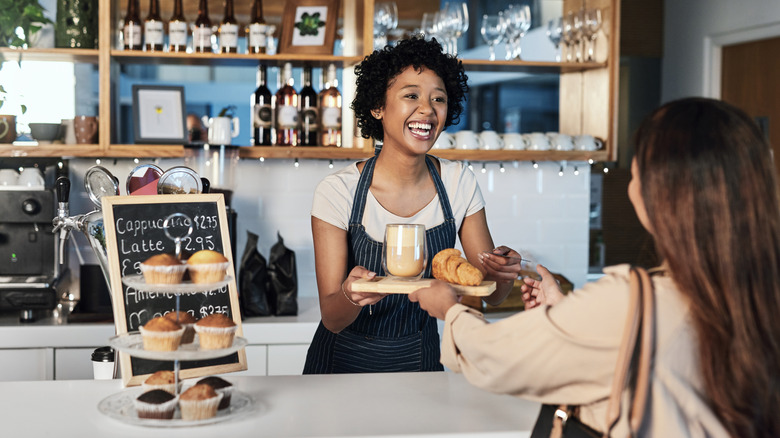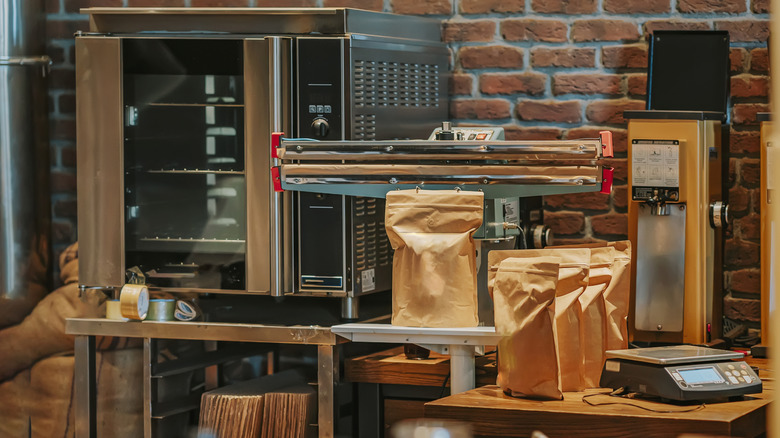Here's How Local Coffee Shops Stay Open Alongside Bigger Chains
It's a tale that has become all too common these days: A fancy new Starbucks moves into a neighborhood, and before long, a small, independently run coffee shop shuts its doors and closes for good. When those local shops manage to stay open, though, it feels like a victory, both for the owners and the neighborhood at large. How do some coffee shops, like Caffe Lena, the oldest coffee shop in the U.S., manage to evade the Starbucks effect and keep enough customers to stay open? Food Republic got some rare insight into the topic from Arda Barlas, owner of Boxx Coffee. According to him, these coffee shops that survive alongside Starbucks, Dunkin', Dutch Bros., and Tim Hortons have — consciously or subconsciously — narrowed down their niche.
But the biggest advantage for smaller shops, he said, "is often the personality of the shop." He was quick to interject that he wasn't saying big chains are lacking in that area — they tend to have plenty of cohesive branding and little quirks (like Starbucks' sizing system). "But the uniformity, and the sheer scale of that uniformity, comes at a cost," he remarked, pointing out that what feels special in one location can then feel generic in many. By virtue of their difference and independence, smaller coffee shops can stand out and continue to drum up business — and they're managing this Herculean task, with foot traffic to local shops on the upswing. "The inherent advantage of a local shop is that it isn't a generic brand. Simply by being different, it stands out," he explained.
Beyond personality: Quality teams and products
Another advantage that local coffee shops have against big national chains, according to Arda Barlas, is what he calls "team motivation." As he explained it, the leaders of smaller shops can communicate more directly with their employees, allowing them to build real relationships, whereas a CEO has to delegate communication with mid-level managers. "As a result, messages from leadership can get lost in translation as they move through layers of the organization," Barlas described. More direct contact from management to employees in a smaller coffee shop is key to more motivated employees, and that means better customer service — and more repeat customers.
From a product perspective, local coffee shops might have access to better beans, as an example. Barlas told us that when you have a big coffee chain, you'd need lots of beans. "That means you can't source a high-quality lot from a specific farm if it only produces five to 10 bags," he said; so the number of potential quality suppliers is a lot smaller the larger the number of locations you have.
"These elements support one another and work together to create success," Barlas commented, cautioning that when one is out of step, the whole enterprise is endangered. For example, if you have great coffee but a miserly staff, or a great environment, personality, and employees in the shop, but sub-par coffee, customers will instead flock to where there is consistency, which might mean Dunkin' or Dutch Bros.


